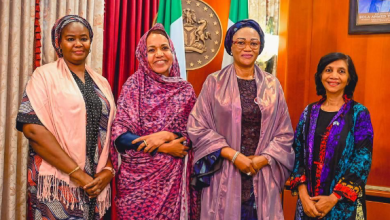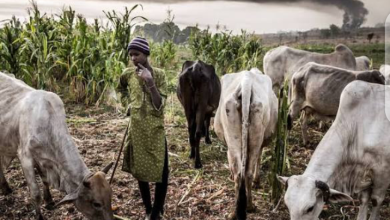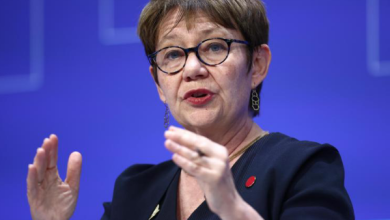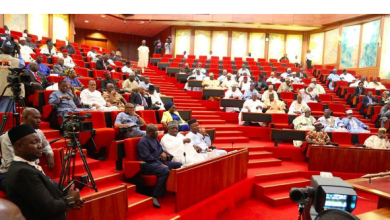Lead
Kashim Shettima arrives in Addis Ababa for UN food summit

Vice-President Kashim Shettima has arrived in Addis Ababa, the Ethiopian capital, to participate in the second United Nations (UN) Food Systems Summit.
The vice-president’s aircraft touched the ground around 4:26p.m. local time, at the Addis Ababa Bole International Airport.
The summit, which would hold from July 27 to 29, aimed to reflect on progress made since the inaugural 2021 UN Food Systems Summit and accelerate commitments towards building resilient, inclusive, and sustainable food systems.
Upon arrival, Shettima was warmly received by the Deputy Prime Minister of Ethiopia, Temesgen Tiruneh, the Chargé d’Affaires of the Nigerian Embassy, Ethiopia, Ambassador Nasir Aminu, and other top officials of the embassy.
The Vice-President was briefed about the itinerary of the summit by the Chargé d’Affaires, who also highlighted the importance of the event.
Shettima would join global leaders at the high-level event on advancing the transformation of the coffee value chain, roundtables, and meetings aimed at bolstering Nigeria’s food security drive.
He would also participate in other events on the sidelines of the summit, designed to spotlight real-world examples of food systems transformation, promote knowledge exchange, and partnership.
The summit would build on the momentum of the 2021 UN Food Systems Summit and the first Stocktake in 2023 (UNFSS+2), focusing on accelerating sustainable, inclusive, and resilient food systems transformation.
The event would spotlight successful country-level transformations, highlight innovative practices, and address challenges faced in fragile and conflict-affected settings.
It will also be part of broader efforts to shape a coherent global narrative on sustainable development and accelerate synergies between key SDG transitions.
The summit is expected to bring together global leaders to reflect on progress made and accelerate commitments towards building resilient, inclusive, and sustainable food systems.
The event would provide a platform for knowledge exchange, partnership, and collaboration among stakeholders to address the challenges facing the global food system.



